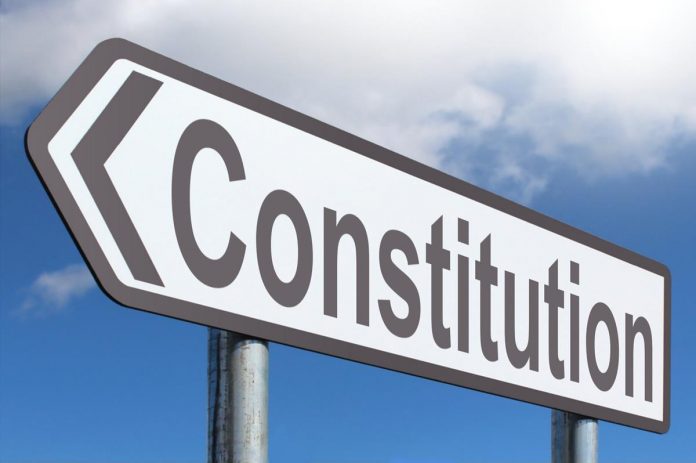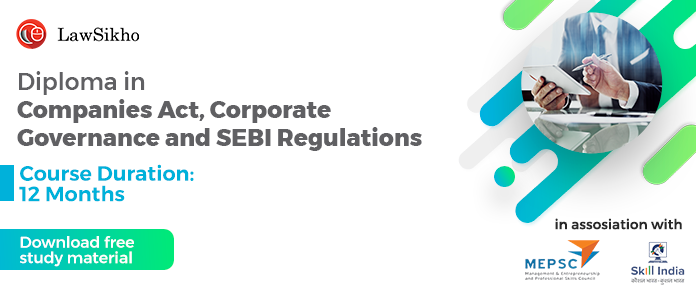This article is written by Gautam Badlani, a student of Chanakya National Law University, Patna. This article examines the provisions and judicial decisions relating to Article 5 of the Indian Constitution. The article highlights the scope of Article 5 and critically analyses the overriding effect of Articles 7 and 9 on Article 5. The article also highlights the relationship between Article 5 and Article 11 of the Constitution.
This article has been published by Sneha Mahawar.
Table of Contents
Introduction
In most countries, provisions related to citizenship are found in statutory laws. However, in India, we see that Article 5 of the Constitution deals with citizenship at the commencement of the Constitution. The reason behind this Article can be attributed to the unusual situation prevalent in India during independence. The country was getting divided into two States, namely, India and Pakistan, and the princely states were free to join either of the two countries. The people who were residing in Pakistan and migrated to India had to be conferred with Indian citizenship, and those who were residing in India and moved to Pakistan had to be debarred from Indian citizenship. Thus, it became imperative to define who would be considered a citizen of India at the time of the commencement of the Constitution.
So far as citizenship after the commencement of the Constitution is concerned, Article 11 confers the power on Parliament to regulate laws relating to the matters of citizenship.
Importance of citizenship
Under the Indian Constitution, citizens are differentiated from foreigners in the sense that citizens enjoy more rights and privileges than aliens. Fundamental rights guaranteed under Articles 15 and 19 are available only to citizens. Moreover, only an Indian citizen is eligible to be nominated or elected as the President of India, Vice President of India, and judge of the Supreme Court or a high court. Further, only citizens enjoy the right to vote or contest in elections.
Analysis of Article 5 of the Indian Constitution
Article 5 provides that any person who has his domicile in India and who was either himself born in the territory of India or any of whose parents were born in the territory of India or who has ordinarily resided in the territory of India for at least 5 years before the commencement of the Constitution shall be a citizen of India.
In the case of Abdul Sattar Haji Ibrahim Patel v. State Of Gujarat (1964), the 5 judge bench of the Supreme Court pointed out that the basic condition under Article 5 is that the person must have a domicile in the territory of India and the requirements prescribed under clauses (a), (b) and (c) are alternate in nature and not cumulative. Hence, if any of the conditions is satisfied, a person would be regarded as an Indian citizen.
Domicile in India
The very first condition that Article 5 imposes is having a domicile in India. Domicile is not defined under Article 366, which is the definition clause of the Constitution. Domicile usually means a permanent home with the intention of residing in that place indefinitely. Domicile is primarily classified into two types:
- Domicile by origin: It refers to the domicile that a person acquires upon his birth.
- Domicile by choice: It refers to the domicile that a person acquires by willfully moving to another country with the intention of permanently residing or settling there.
In the case of Central Bank of India v. Ram Narain (1954), it was held that the domicile of a person is that place where he has a fixed habitat without any intention of moving from there.
In order to obtain the domicile of India, it is necessary to establish the intention of permanently settling in India. In the case of Mohammad Reza Debstani v. State of Bombay (1966), the appellant who had gone to Iraq and had subsequently returned to India was denied citizenship on the ground that he had failed to establish the intention of permanently residing in India. After returning from Iraq, the appellant had applied several times to extend his stay in India. While his stay was initially extended, his request for an extension was turned down in 1957. He appealed before the Supreme Court that he should be regarded as a citizen under Article 5 of the Constitution. The Court held that the request for multiple extensions was sufficient to establish that the appellant never had the intention of permanently residing in India.
Limitations of Article 5 of Indian Constitution
Article 6 provides that irrespective of anything contained in Article 5, if a person has migrated to India from Pakistan, he will be regarded as a citizen of India at the time of commencement of the Constitution if:
- His parents or grandparents were born in India as provided by the Government of India Act, 1935.
- He migrated to India before 19th July 1948 and has ordinarily resided in India thereafter.
- He migrated to India on or after 19th July, 1948 and applied for citizenship in the prescribed manner after residing in India for at least 6 months.
Article 7 of the Constitution provides that any person who migrated to Pakistan after 1st March, 1947 will not be regarded as a citizen of India under Article 5 or 6 of the Constitution. Thus, Article 7 contains a non-obstante clause.
Article 9 of the Constitution provides that if a person acquires the citizenship of a foreign country, then he will not be deemed to be a citizen of India by virtue of Article 5. Thus, we see that the concept of dual citizenship is not permitted under the Indian Constitution. A person cannot hold Indian citizenship and a foreign citizenship simultaneously.
Landmark judgments
Firoz Meharuddin v. Sub-Divisional Officer (1960)
In the case of Firoz Meharuddin v. Sub-Divisional Officer (1960), the three-judge bench of the Madhya Pradesh High Court held that citizenship by virtue of Article 5 is never absolute and the person who claims to have fulfilled all the criteria prescribed in Article 5 would be deemed not to be a citizen of India if he migrated to Pakistan after 1st March 1947. Even though a person had an Indian domicile at the time of the commencement of the Constitution and fulfilled the conditions of Article 5, he would be regarded as an alien.
With respect to the petitioner’s contention that a person who fulfilled the criterion of Article 5 would have absolute citizenship, the Court noted that if the framers of the Constitution wanted to confer absolute citizenship, then there would have been no need for a non-obstante clause and a fiction clause (Article 7). The framers could have simply inserted a proviso to this effect stating that any person who migrated to Pakistan from 1st March 1947 to 26th January 1950 (when the Constitution came into effect) would be excluded from the scope of Article 5.
However, the framers did not adopt this approach and rather inserted Article 7 as a non-obstante clause. Thus, the precarious right under Article 5 can also be extinguished with retrospective effect. Under Article 9, a person acquiring foreign citizenship would be disqualified from being an Indian citizen.
Thus, the Court concluded that a person becomes an ipso facto citizen if he has complied with all the conditions of Article 5. However, he can be deprived of citizenship with retrospective effect if he migrated to Pakistan after 1st March, 1947. Similarly, he can be precluded from citizenship if he acquired foreign citizenship. Thus, Articles 7 and 9 override Article 5.
Rashtriya Mukti Morcha v. Union of India (2006)
In the case of Rashtriya Mukti Morcha v. Union of India (2006), issue arose before the two-judge bench of the Delhi High Court whether Article 5 would override Article 11 of the Constitution and whether the provisions of Article 11, Representation of People’s Act, 1951 and Citizenship Act, 1955 need to be read in conjunction. The Court held that Article 5 was only intended to decide citizenship at the time of commencement of the Constitution and the Constituent Assembly decided to leave sensitive matters relating to citizenship to the wisdom of democratically elected representatives of the people. The Parliament, under Article 11, has the power to determine whether non-citizens should be conferred with civic and political rights or not. Thus, it is not necessary that all the statutes enacted by virtue of Article 11 must be in conjunction with Article 5.
The Court thus held that Article 5 will not have an overriding effect over Article 11 or any statutes enacted by the exercise of power vested by Article 11.
Kulathil Mammu v. the State Of Kerala (1966)
The Supreme Court interpreted Articles 5, 6 and 7 in the case of Kulathil Mammu v. State Of Kerala (1966). The Court made the following observations
- The framers of the Constitution included the concept of domicile in Article 5 but deliberately excluded it from Articles 6 and 7.
- The person to whom Article 7 applies is disqualified from claiming citizenship either under Article 5 or under Article 6.
- The Court referred to the case of State of Bihar v. Kumar Amar Singh (1955), where a lady who went to Pakistan contended that since the domicile of her husband was India, she too would be deemed to have the domicile of India and hence was entitled to citizenship under Article 5. She also contended that she had gone to Pakistan to get medical treatment, but this was discovered to be false. The Court concluded that even if the domicile of the lady is taken to be India on the basis of the domicile of her husband, she would still be disqualified from availing the benefit of Article 5 as her case would come within the scope of Article 7 and Article 7 will override Article 5.
- The Court, after interpreting Articles 5, 6, and 7 concluded that three dates are of importance.
The first was 26th January 1950. Those who had an Indian domicile on this day and satisfied either of the three requirements mentioned under Article 5 would be deemed to be citizens of India.
The second was 19th July, 1948. The permit system provided that those who were in the territory that went to Pakistan could come back to Indian territory before 19th July, 1948 and ordinarily reside in India till 26th January, 1950 to be deemed Indian citizens. If these persons came back to India after 19th July, 1948 and stayed in India for a period of 6 months, they could get Indian citizenship by making an application in the prescribed format.
The third date would be 1st March, 1947. Those who migrated to Pakistan after 1st March, 1947 would not be considered Indian citizens even if they satisfied the conditions provided under Article 5.
Conclusion
After 75 years of independence, we see that Article 5 has become more relevant for academic and historical purposes as compared to practical purposes. Article 5 was meant to deal with the extraordinary situation of that time.
Currently, Article 11 and the laws made by the Parliament by virtue of Article 11, such as the Citizenship Act, 1955, regulate the citizenship norms in India. The statutes enacted by the Parliament also regulate the political and legal rights of citizens as well as non-citizens.
Frequently Asked Questions
Which Act deals with the determination of citizenship in India?
In exercise of the powers conferred by Article 11, the Parliament has enacted the Citizenship Act, 1955 which regulates the determination of citizenship in India. This Act contains provisions regulating how Indian citizenship can be acquired and terminated.
Which statute deals with the conduct of elections of the Lok Sabha, Rajya Sabha and the state legislatures?
The Representation of People’s Act, 1951 regulates the conduct of elections in India. It provides the qualifications and disqualification for contesting the elections and provides the activities which would amount to corrupt practices during elections. It also prescribes the mechanism for resolving any elections-related dispute.
References
- VN Shukla, Constitution of India
- https://www.constitutionofindia.net/constitution_of_india/citizenship/articles/Article%205
- https://unacademy.com/content/nda/study-material/general-knowledge/citizenship-article-5/
Students of Lawsikho courses regularly produce writing assignments and work on practical exercises as a part of their coursework and develop themselves in real-life practical skills.
LawSikho has created a telegram group for exchanging legal knowledge, referrals, and various opportunities. You can click on this link and join:
Follow us on Instagram and subscribe to our YouTube channel for more amazing legal content.
 Serato DJ Crack 2025Serato DJ PRO Crack
Serato DJ Crack 2025Serato DJ PRO Crack












 Allow notifications
Allow notifications


